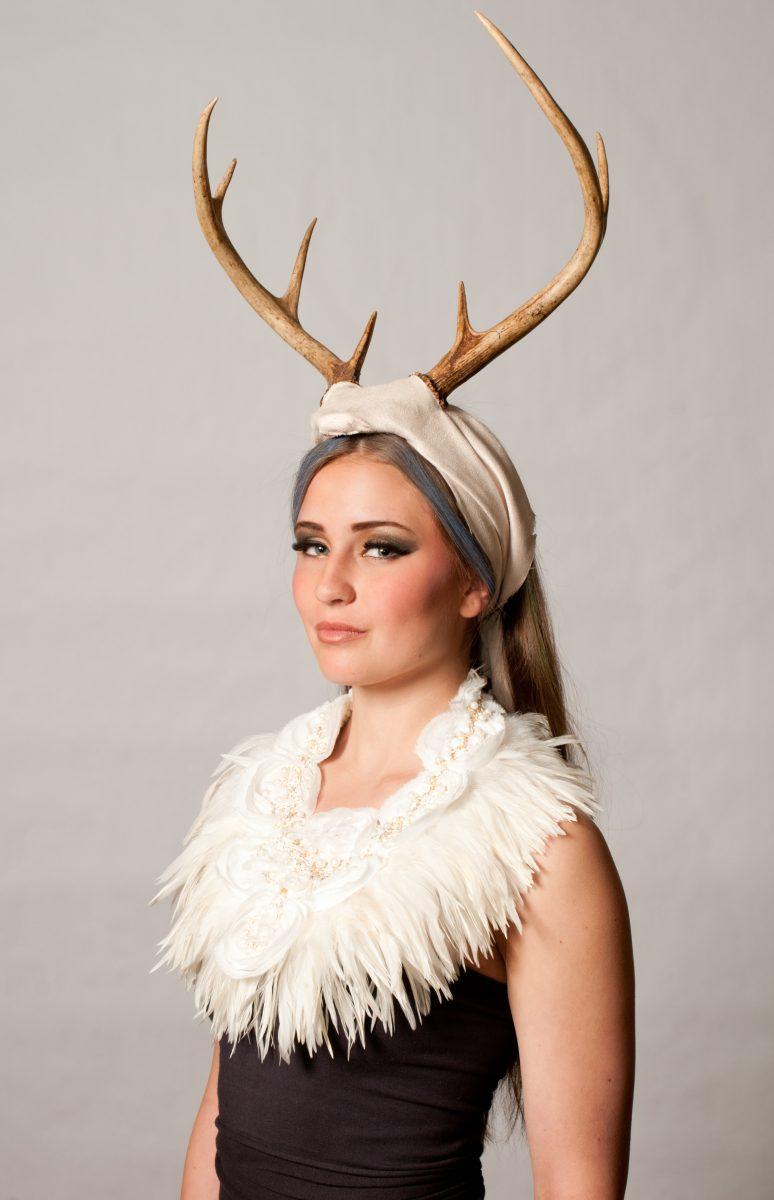The fashion and textiles industries are currently worse for the environment than many people realize — they cause large amounts of waste materials and chemicals, and many lightly worn items are simply tossed away instead of being recycled.
Redress, an eco-friendly company dedicated to promoting local designers, kicked off their inaugural Redress Eco-Fashion & Textiles Conference in order to combat the problem.
“Our mission in the long term is to be a catalyst for change in the fashion and textiles industries toward more sustainable resources,” said Beth Stewart, the strategic director and one of the founding members of Redress.
The conference was intended to start a dialog about green clothing, as well as to highlight the local designers that Redress works with and promotes.
“A lot of smaller designers are doing this on the side,” Stewart said. “So for us, we can see the fashion and how they could get there, but they aren’t necessarily able to do it themselves.”
A wide variety of these local designers were there to participate, showing off everything from eco-friendly shoes to jewelry made from discarded materials.
Emily Kirchem, owner and designer at Edie Kaye, for example, makes custom wedding gowns out of hand-me-down fabrics or discarded materials. If she does have to buy material, she says she tries to buy eco-consciously.
“There’s just a lot of value — especially in your wedding gown,” Kirchem said. “It adds depth. It’s kind of special, for example, if it’s made of your mother’s wedding gown, or if being eco-friendly is something that’s important to you.”
Melissa Lowery, owner and designer of SSD Jewelry, on the other hand, focuses on more off-the-wall accessories. While she also makes jewelry and belts, this year she was specializing and experimenting with headdresses, keeping to what she called a “heavy tribal modern nomad feel.”
“I’ve incorporated some antlers,” Lowery said.
These mostly feathered headdresses ranged from small accessories that Lowery suggested one might wear to a music festival, as they have a bit of a “fantasy element,” to huge, difficult-to-engineer pieces modeled after traditional Native American headdresses.
She reinforced this stylistic environmental choice through the materials that she used — they were made out of discarded leather from local businesses, felt made out of recycled bottles and feathers naturally dropped by birds living on a peacock farm.
Jessica Moore, owner and designer of Little Grey Line, showcased dresses she had made for small girls out of discarded men’s dress shirts.
Moore said she got the idea when she and her husband were about to donate two bags of dress shirts that were still high quality and she decided to try to make one into a dress for her two-year-old daughter. Her daughter is now four and her dress-shirt to tiny dress idea has become a small business.
Two green design organizations, “Revamp” and “Good Girl Studio,” also worked together on a line for the conference called “Guardian.” The line included reconstructive vintage jewelry from “Good Girl Studio” that was mainly made of bullet casings. Jamie Powell, the designer for “Revamp” and a director and founding member of Redress, created the matching clothing for the line.
She wanted to make the clothing everyday easy-to-wear clothes, such as jerseys and informal dresses, and stuck to a grey, black and dark blue color scheme.
“It has this kind of warrior look to it,” Powell said.
However, she kept the whole line eco-friendly by making everything out of lyocell, a fabric made with recycled plant pulp.
“It’s a way to create fabric with a waste product,” Powell said.
Speakers were also invited to attend in order to advise up-and-coming eco-designers, one of whom was Nathan Rothstein, the president of Project Repat. Project Repat is a company that turns old T-shirts into blankets — customers send in T-shirts that they no longer wear, and the company sends them back a blanket made of the material. They’ve sold 12,000 of them in the last year.
“America prints a T-shirt for every event,” Rothstein said. “They’re like adult trophies … People have all these memories in these T-shirts and they don’t necessarily wear them anymore, but they don’t want to donate.”
Many of the products displayed were sold at a conference market Sunday, but anything not bought can be found online at Lipi, an e-commerce marketplace that sells local specialty goods, created by Brian Marks, the founder of WebAssign.








